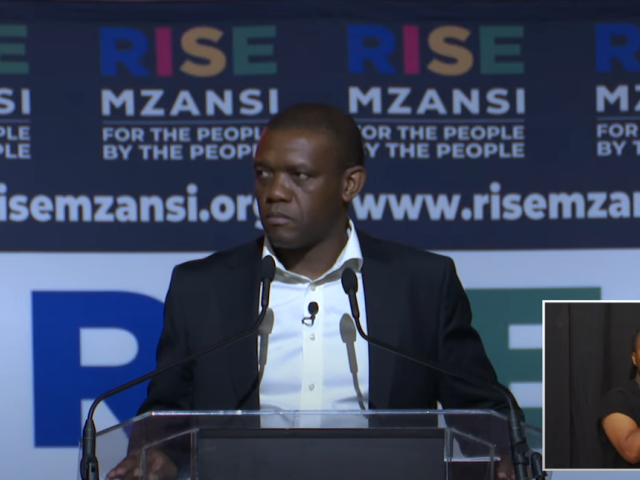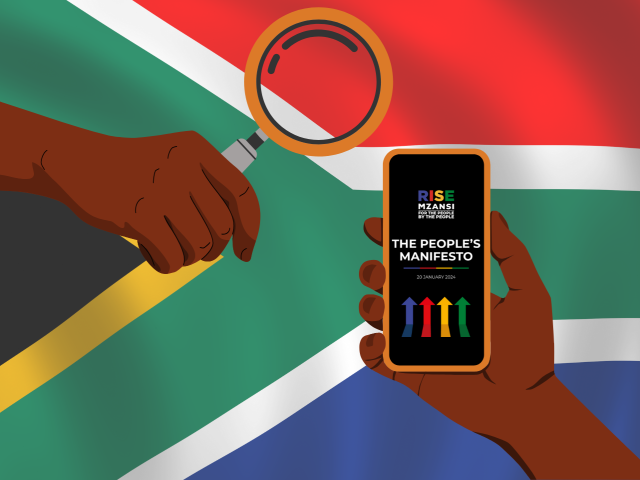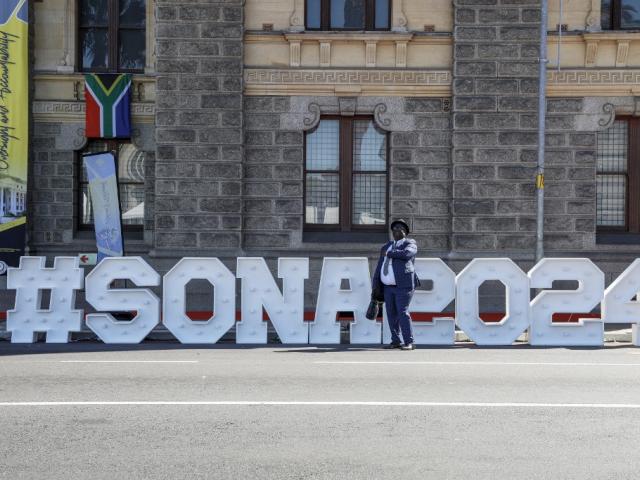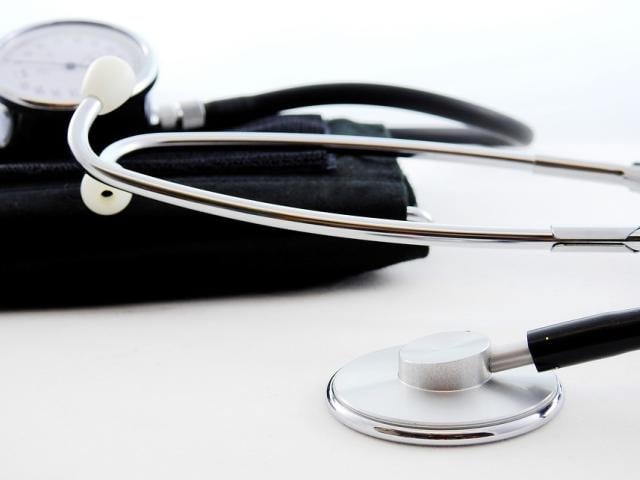Yet another strike by frontline doctors in Nigeria has cast a spotlight on their working conditions.
The strike by resident doctors started on 2 August 2021, and is the fourth among doctors in the country in just over a year.
The government’s response to this has alternated between appeals to resume work and threats of sackings.
Members of the National Association of Resident Doctors, however, say they will not relent until their terms are met.
During another strike in April, the doctors listed 10 demands. These included improved pay, insurance and better working conditions.
This explainer answers some key questions about Nigeria’s doctors residency programme and the doctors’ plight.
1. Who are resident doctors and what is their role in healthcare?
Resident doctors are medical school graduates training to become specialists.
They dominate emergency wards in teaching or federal medical centres in Nigeria and are therefore essential as first contacts in public hospitals. The term “resident” came to be because they generally live in the hospitals.
They carry out their training in 84 public and military hospitals and 15 private ones that are approved for the residency programme.
There are 17,000 resident doctors in Nigeria, who make up 40% of the estimated doctor population in the country, according to Uyilawa Okhuaihesuyi, the president of the resident doctors’ association.
The doctors’ current strike coincides with the third wave of Covid-19 and a deadly outbreak of cholera in some parts of the country.
2. How does the residency training programme work?
The residency programme is backed by an act of parliament. The Medical Residency Training Act of 2017 stipulates its regulatory framework, structure, entry requirements, duration and the expected professional conduct.
According to the law, a resident doctor is entitled to:
-
Government sponsorship of four update courses and two examinations.
-
A salary entry point as contained in the scheme of service.
-
An annual increment in salary, and promotion subject to passing the examination of each level of the training programme.
-
Conditions of service that apply to a resident doctor shall be in accordance with the country’s public service rules.
The law also provides for budgetary allocations to residency training institutions, in addition to this coming from the institutions’ own funding.
Doctors’ wages and allowances are paid by the federal or state government – depending on the jurisdiction of their training centre.
Implementation of the funding started in 2020, Seun Sulaiman, a resident doctor and spokesperson of the University College Hospital Ibadan chapter of resident doctors, told Africa Check.
“Under the fund, resident doctors in Nigeria, especially those in federal teaching hospitals and federal medical centres, are to receive N542,000 (about US$1,320) every year for five years,” he said.
Ministers have said the funds are paid to the doctors directly. Sulaiman said the money is used to pay for books and exam fees, among other expenses.
3. Why do Nigeria’s resident doctors down tools so often?
Resident doctors have gone on strike every year between 2017 and 2020.
Some of these strikes were at the national level and others at the state or hospital level.
Arrears payments, improved pay and better working conditions have consistently featured on the list of demands presented by the doctors since 2017. (Note: For more on these grievances, read our factsheet, Why do Nigeria's doctors feel unloved?)
Kenneth Ozoilo is president of the Medical and Dental Consultants' Association of Nigeria. He says the government seems to only give heed when it is under pressure.
“I think it is unfortunate that the government puts itself in a position where it is unable to honour agreements and these issues do not arise overnight,” Ozoilo told Africa Check.
“Unfortunately, the government has given people the impression that they will not do anything unless there is a crisis,” he said, adding that the resident doctors had legitimate grievances.
“These are agreements that the government went into voluntarily during negotiations with them,” Ozoilo said.
“Government needs to restore confidence in its agreements because the resident doctors are meeting their end of the bargain by working and if they were not there, the government would have to employ other people.”
Tough working conditions, Covid-19 and hazard allowance
Ministers have often compared the local residency programme with those in other countries, arguing the Nigerian one is better supported.

Tanimola Akande is professor of public health at the University of Ilorin in western Nigeria’s Kwara state. He said it was acceptable to compare working conditions across countries “since the ultimate goal is to ensure quality health care is provided to everyone”.
But the human resource for providing this “can only be effective and efficient if the working environment is suitable,” he told Africa Check.
In April, labour and employment minister Chris Ngige said the government had disbursed N32 billion to medical personnel as a special Covid hazard allowance for three months.
Okhuaihesuyi, the president of the resident doctors association, confirmed that they received the special allowance for three months in 2020.
The doctors claim hazard allowances have remained at N5,000 for over 30 years.
The families of 19 resident doctors who died from Covid-19 have not been paid any death-in-service benefits, Okhuaihesuyi said.
Ozoilo, who heads the medical and dental consultants’ association, says Covid-19 is not the only hazard faced by Nigeria’s doctors. Others include physical and infectious ones.
“There have been cases where doctors get grabbed or injured by a patient's relatives when relaying bad news about the patient,” he said. This has also been reported in other countries.
Health workers are also targeted by kidnappers because of rising insecurity in the country, “as people think they are rich and can pay huge ransoms,” Ozoilo said.
“So the hazard allowance is not only about Covid but it took Covid for the federal government to realise that the N5,000 hazard allowance is insufficient.”
4. Brain drain is a key challenge
In 2019 minister Ngige controversially said “brain drain”, or doctors leaving to practise elsewhere, was not a worry as Nigeria had more than enough doctors.
Although he conceded the country lacked some advancements, Ngige, who is also a medical doctor, said the country’s doctors had the ability to provide treatments that were sought abroad.
In 2018, then health minister Isaac Adewole said medical school graduates had the option of becoming farmers or politicians as there wasn’t a serious shortage of doctors in the country.
An online survey of 705 Nigerian doctors in various positions show the US, UK and Canada remain the top destinations for those migrating. Those who chose to remain in the region mainly opted for South Africa.
Apart from seeking higher pay and a better work environment, career progression was a key reason for leaving, the poll found.
An online register maintained by the General Medical Council in the UK showed that 8,590 Nigerian doctors were registered to practise in the country as of August 2021. Of those, 1,968 were doctors in training.
The Federation of State Medical Boards supports the US state medical boards in licensing, disciplining and regulating physicians and other healthcare professionals.
Xiaomei Pei, a research project manager at the federation, told Africa Check that “3,895 Nigeria-educated physicians are licensed to practice medicine in the US as of 2020, accounting for 1.7% of all licensed physicians who are international medical graduates”.
He added that 11% were 40 years or younger, compared to 24% of all US physicians. Some 65% were male physicians, compared to 63% of all US physicians.
The greatest number of licenses to Nigerian doctors were issued by the state of Texas, followed by Georgia and New York states.
5. Do doctors pay to get into residency training in the US , UK or elsewhere?
In April 2021, Ngige claimed the funding for doctors residency training in Nigeria was free, as opposed to the US and UK, where doctors had to pay to get into the residency programme.
“That claim is not correct because Nigeria did not invent its residency programme system, the programme is modelled after those of other countries,” Ozoilo of the medical and dental consultants’ association told Africa Check.
“Even in the US and other systems, you do not pay. You work and you get paid,” he said.
According to the American Medical Association, doctors in training in the US do not pay for residency programmes. They do, however, pay to get matched with available residency programmes. This is done by the National Resident Matching Program, a private non-profit organisation.
After being matched, they are paid salaries during the residency programme.
The UK’s National Health Service (NHS) also said that medical school graduates are not charged any fee to join its residency programme.
“I can confirm that we do not charge students to join the programme,” an official of the NHS said in an email to Africa Check.
6. What do doctors get paid in countries other than Nigeria?
According to a November 2017 Huffington Post article by Darryl Weiman, a professor of surgery at the University of Tennessee in the US, a significant portion of a resident doctor’s salary is funded by the US government.
Weiman’s claim is supported by a 1997 book by the US National Academy of Medicine titled On Implementing a National Graduate Medical Education Trust Fund. It explains that Medicare, the US federal health insurance programme, pays hospitals that have graduate medical education programmes.
The average salary of resident doctors in the US increased from $55,400 (about N22.7 million) a year in 2015 to $63,400 (about N26 million) a year in 2020.
A breakdown showed that first-year resident doctors were paid $57,100 annually in 2020 and the salary increased at every stage of residency training.
In contrast, Sulaiman told Africa Check that first-year resident doctors in Nigeria are paid between N250,000 and N276,000 monthly (between $609.75 and $673). This comes to between $7,317 and $8,076 a year. (Note: These figures are provided only for broad comparison and do not consider differences in the cost of living.)
In the UK, doctors in training earn a basic salary of between £28,243 and £32,691 (between N16 million and N18.6 million, or $38,850 and $44,970) annually, plus overtime pay.
UK residents are also entitled to a 37% salary enhancement for working nights, a weekend allowance for any work done at the weekend and an availability allowance if they are required to be available on-call.






Add new comment